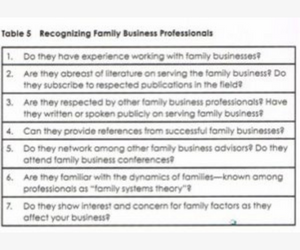Cognitive Function And Menopause
MENOPAUSE CAN IMPACT COGNITIVE FUNCTION
It’s widely recognized that menopause affects mood and sleeping. However, menopause can also have a measurable impact on how a woman performs cognitively. This includes tests used clinically for a variety of purposes, including screening for Alzheimer’s. The very good news is that a woman’s mental performance will typically bounce back when she’s past menopause.
MENOPAUSAL WOMEN WITH COGNITIVE PROBLEMS NEED REASSURANCE
Memory problems are a common and passing symptom that can accompany menopause. It would be nice to have a dollar for every woman who says, “You mean this is normal?” when reassured both that her memory problems are common at this stage in her life, and she’s almost certainly not developing Alzheimer’s Disease. it’s highly unlikely at this age that what she’s going through is anything other than temporary and relatively normal.
THE COGNITIVE DECLINE IS ESTROGEN-RELATED
We used to think that the sleep disturbances and mood changes associated with menopause were by themselves enough to explain the cognitive problems that some women experience. However, we now know that although these two factors may exacerbate the problem, the cognitive decline is really independent of them. Estrogen has an impact on memory areas of the brain, and we know, for example, that when a woman has her ovaries surgically removed, she’ll experience a memory decline that gets reversed when she’s given estrogen.
EXERCISE IS LIKELY TO HELP REDUCE HER SYMPTOMS
A number of very good clinical trials show that memory problems during menopause alleviated with exercise. This is also true for memory problems later in life. This doesn’t have to be marathon running. Moderate exercise three or four times a week for 40 minutes can make an important difference.
The exercise doesn’t have to be all at once. It can be spread throughout the day, and can include such things as walking up stairs, parking several blocks away, or just going for a brisk walk.
THERE’S A LOT OF ADDITIONAL THINGS A PATIENT CAN DO TO ALLEVIATE HER MEMORY PROBLEMS
Avoiding excess alcohol is also good for the brain. The guidelines for moderate drinking are one drink a day for women and two drinks per day for men. Binge drinking for women is defined as four drinks in 2 hours. A little bit of alcohol, particularly red wine, appears to be good for the brain but it doesn’t take much to exceed standards.
Good sleep hygiene can also help menopausal memory problems. Avoid excess alcohol and caffeine. In addition, it’s important not to be looking at screens, such as an iPhone or iPad before bed. It will interfere with normal sleep. The bright screens emit blue light, which can make your pineal gland act as if it’s daytime.
Stress and anxiety can impair memory. There is good evidence that stress reduction such as yoga can help.
Cultivating her social network may also help. We know that people with extensive social networks frequently do better on memory tests.
In the case of women who have moderate to severe night sweats or hot flashes, use of hormone therapy (HT) will probably mean better sleep and better mood. Additionally,- her memory will benefit indirectly. A variety of well-done studies show no direct benefit to memory from taking HT during menopause but those studies have not specifically enrolled women with moderate-to-severe hot flashes so we still don’t know definitively if HT has a direct benefit on brain function in women who are most likely to use HT.
We don’t have good evidence that vitamins or supplements will help with memory problems. However, there is surprisingly good data showing that a Mediterranean diet can be helpful.
WOMEN ARE GOOD AT EVALUATING THEIR OWN COGNITIVE FUNCTION
We know from cognitive tests that menopausal women’s assessments of their own memory during menopause tend to be quite accurate. If you ask a patient, “How good is your memory,” and she answers, “Good,” you can usually take her at her word because she’s highly likely to perform well on the cognitive tests. Conversely, if she tells you, “My memory is poor,” she’s likely to do poorly on the tests. This is also true of elderly women. The exception that in some cases of dementia, the part of the brain that evaluates memory has deteriorated, and in that case, the individual cannot judge her own memory.
WORRY ABOUT COGNITIVE FUNCTION MAY MOTIVATE IMPROVED LIFESTYLE
Because her memory is important to her, when you discuss the link between her lifestyle and her memory problems, this may motivate her to make changes she hasn’t made up to now.
Search Articles
Latest Articles
Ukraine’s Mental Health Crisis & AI Solutions
https://aablanco.substack.com/p/ukraines-mental-health-crisis-and?utm_source=post-email-title&publication_id=1780826&post_id=153290811 Publication –aablanco.substack.com
Tackling Trauma Through Artificial Intelligence
https://www.psychologytoday.com/us/blog/to-end-human-trafficking/202411/tackling-trauma-through-artificial-intelligence Publication –psychologytoday.com
The Diplomat Mitzi Perdue Nantucket Ukraine
https://www.n-magazine.com/the-diplomat-mitzi-perdue-nantucket-ukraine Publication –n-magazine.com
An Explosive Choice: Landmines and Ukraine
https://cepa.org/article/an-explosive-choice-landmines-and-ukraine/ Publication –cepa.org
Subscribe to Updates
About Author

Mitzi Perdue is the widow of the poultry magnate, Frank Perdue. She’s the author of How To Make Your Family Business Last and 52 Tips to Combat Human Trafficking. Contact her at www.MitziPerdue.com
All Articles
Choosing Your Family Business Advisors
Choosing Your Family Business AdvisorsKnow when you need to get help. People often ask me the secret of Frank Perdue’s success. He had to do hundreds of things right. He had to be able to see the big picture as well as be detail oriented. But there was something else:...
Substance Abuse and the Family Business
Substance Abuse and the Family Business When it comes to substance abuse, members of a family business are no more immune than the rest of the population. However, as family business advisor Loyd Rawls points out, the consequences can be more dire because serious...
Infertility: Advances In Treatment
Infertility: Advances In TreatmentAge and Infertility are Linked Infertility affects roughly 12% of women. By the time a woman is in her early 40s, her chance of infertility rises to 20%. It’s a particularly difficult problem for the older woman because the quality...
Career Advice for Young People: Shut Up and Listen!
Career Advice for Young People: Shut Up and Listen! Jack Tatem, a former Perdue Vice President, has some serious advice for young people. It’s simple and it can make a big difference in your career. It has to do with listening. The advice is, “Shut up and listen!” He...
Embedding The Family’s Values by Creating an Ethical Will
Embedding The Family’s Values by Creating an Ethical WillOriginal Article written by Mitzi can be found here. Much as I admired Frank Perdue for his success with his family poultry business, I admired him even more for his success as a family man. Since the happiness...
6-Step Solution to Almost Any Problem
6-Step Solution to Almost Any Problem 1. Describe the Problem. Preferably do this in writing. The act of putting the problem into words can clarify your thinking. 2. Write Down the Obstacles. Although I’m a fan of positive thinking, I’m also a fan of research...





